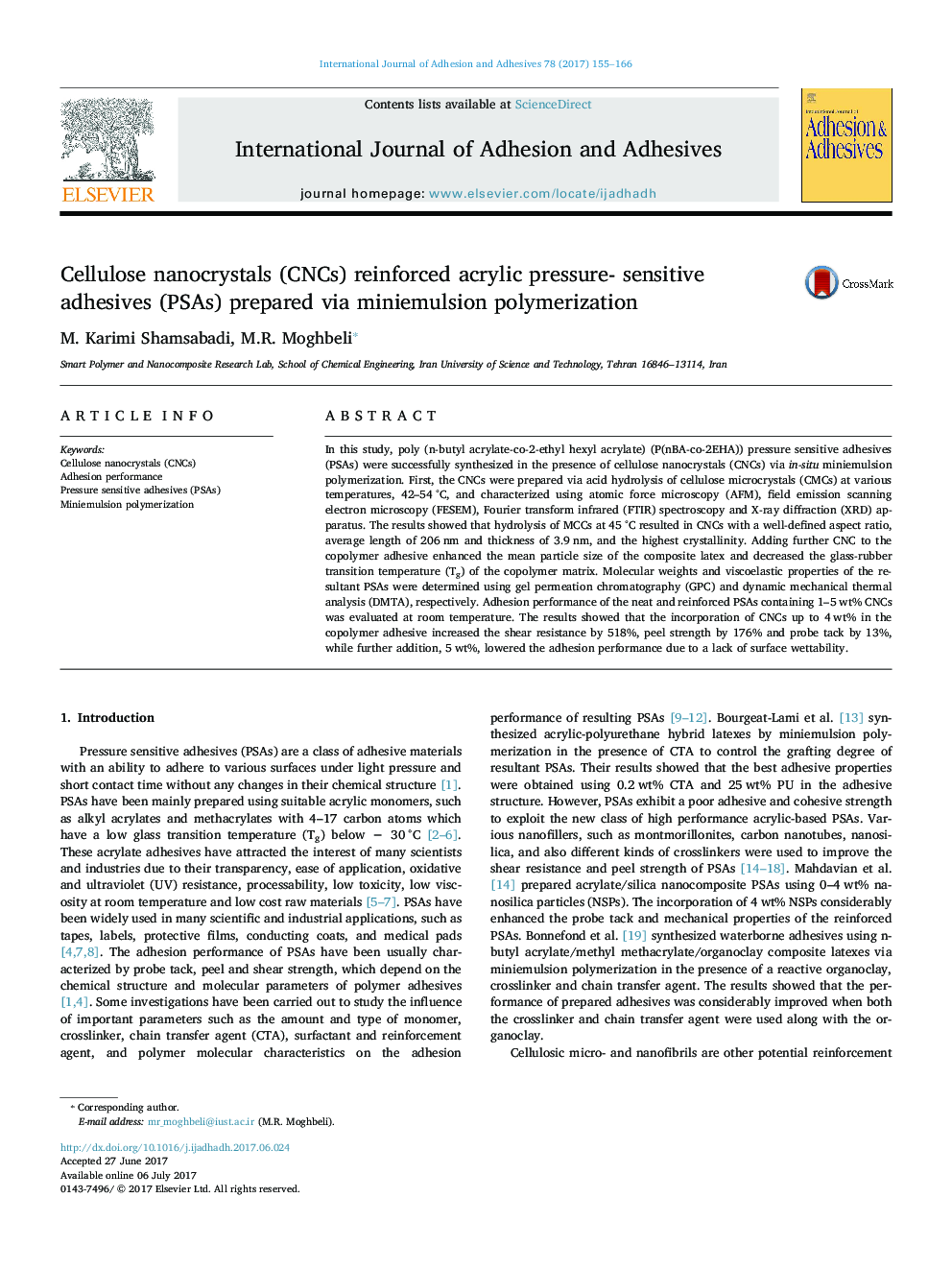| Article ID | Journal | Published Year | Pages | File Type |
|---|---|---|---|---|
| 5014776 | International Journal of Adhesion and Adhesives | 2017 | 12 Pages |
Abstract
In this study, poly (n-butyl acrylate-co-2-ethyl hexyl acrylate) (P(nBA-co-2EHA)) pressure sensitive adhesives (PSAs) were successfully synthesized in the presence of cellulose nanocrystals (CNCs) via in-situ miniemulsion polymerization. First, the CNCs were prepared via acid hydrolysis of cellulose microcrystals (CMCs) at various temperatures, 42-54 °C, and characterized using atomic force microscopy (AFM), field emission scanning electron microscopy (FESEM), Fourier transform infrared (FTIR) spectroscopy and X-ray diffraction (XRD) apparatus. The results showed that hydrolysis of MCCs at 45 °C resulted in CNCs with a well-defined aspect ratio, average length of 206 nm and thickness of 3.9 nm, and the highest crystallinity. Adding further CNC to the copolymer adhesive enhanced the mean particle size of the composite latex and decreased the glass-rubber transition temperature (Tg) of the copolymer matrix. Molecular weights and viscoelastic properties of the resultant PSAs were determined using gel permeation chromatography (GPC) and dynamic mechanical thermal analysis (DMTA), respectively. Adhesion performance of the neat and reinforced PSAs containing 1-5 wt% CNCs was evaluated at room temperature. The results showed that the incorporation of CNCs up to 4 wt% in the copolymer adhesive increased the shear resistance by 518%, peel strength by 176% and probe tack by 13%, while further addition, 5 wt%, lowered the adhesion performance due to a lack of surface wettability.
Related Topics
Physical Sciences and Engineering
Engineering
Mechanical Engineering
Authors
M. Karimi Shamsabadi, M.R. Moghbeli,
